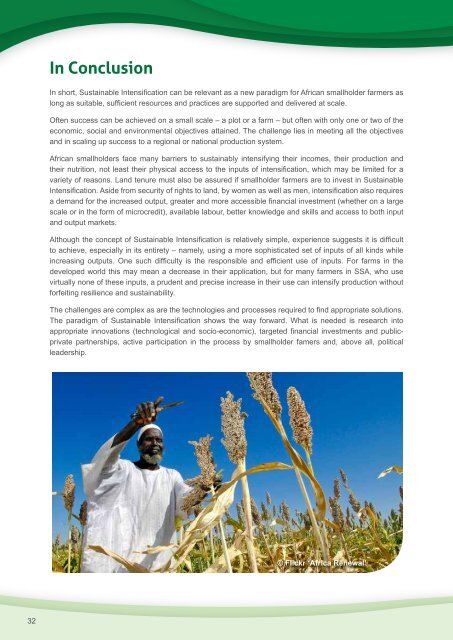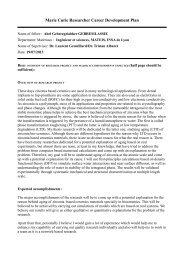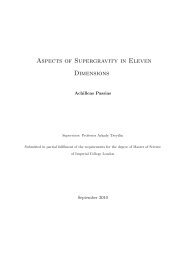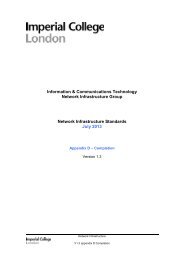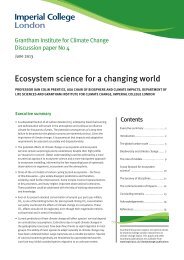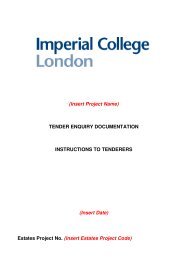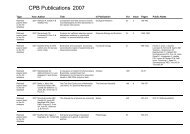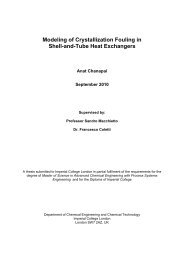Sustainable Intensification: - Workspace - Imperial College London
Sustainable Intensification: - Workspace - Imperial College London
Sustainable Intensification: - Workspace - Imperial College London
You also want an ePaper? Increase the reach of your titles
YUMPU automatically turns print PDFs into web optimized ePapers that Google loves.
32<br />
In Conclusion<br />
In short, <strong>Sustainable</strong> <strong>Intensification</strong> can be relevant as a new paradigm for African smallholder farmers as<br />
long as suitable, sufficient resources and practices are supported and delivered at scale.<br />
Often success can be achieved on a small scale – a plot or a farm – but often with only one or two of the<br />
economic, social and environmental objectives attained. The challenge lies in meeting all the objectives<br />
and in scaling up success to a regional or national production system.<br />
African smallholders face many barriers to sustainably intensifying their incomes, their production and<br />
their nutrition, not least their physical access to the inputs of intensification, which may be limited for a<br />
variety of reasons. Land tenure must also be assured if smallholder farmers are to invest in <strong>Sustainable</strong><br />
<strong>Intensification</strong>. Aside from security of rights to land, by women as well as men, intensification also requires<br />
a demand for the increased output, greater and more accessible financial investment (whether on a large<br />
scale or in the form of microcredit), available labour, better knowledge and skills and access to both input<br />
and output markets.<br />
Although the concept of <strong>Sustainable</strong> <strong>Intensification</strong> is relatively simple, experience suggests it is difficult<br />
to achieve, especially in its entirety – namely, using a more sophisticated set of inputs of all kinds while<br />
increasing outputs. One such difficulty is the responsible and efficient use of inputs. For farms in the<br />
developed world this may mean a decrease in their application, but for many farmers in SSA, who use<br />
virtually none of these inputs, a prudent and precise increase in their use can intensify production without<br />
forfeiting resilience and sustainability.<br />
The challenges are complex as are the technologies and processes required to find appropriate solutions.<br />
The paradigm of <strong>Sustainable</strong> <strong>Intensification</strong> shows the way forward. What is needed is research into<br />
appropriate innovations (technological and socio-economic), targeted financial investments and publicprivate<br />
partnerships, active participation in the process by smallholder famers and, above all, political<br />
leadership.<br />
© Flickr ‘Africa Renewal’


